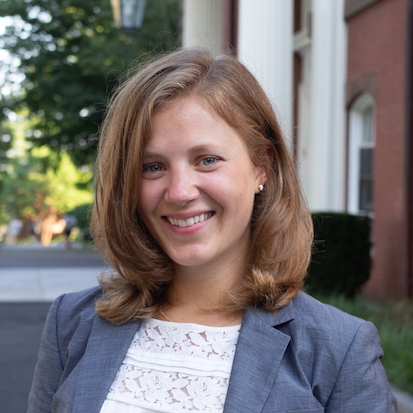As a student, it’s easy to fall into feeling voiceless. Some days, it feels like everything is holding me back, from administrative bureaucracy and student loans to that one difficult group project that seems bent of keeping me from graduation. Luckily, there are professors like Alnoor Ebrahim, Professor of Management at the Tufts Fletcher School of Law and Diplomacy. His use of closed loop feedback practices enables students to engage with course materials, our peers, and himself in thoughtful ways that help create a sense of ownership and voice in the classroom.
In our class, Managing Nongovernmental Organizations and Social Enterprises, we use several different mechanisms to enable feedback practices, from open discussions, mid-semester and end of semester surveys, and emails through myself, the teaching assistant, passed on anonymously to the professor.
Each of these tools enhances the classroom life, both for us as students and for Professor Ebrahim. They help even out the traditional student-teacher power dynamic that can leave students and professors alike frustrated, but unable to understand quite why. We’ve seen that feedback in the classroom can do many things, but here are few that particularly stand out:
- Increased student voice = increased student stake. Our class opens each semester with
conversation on the grading structure. Given how different each class make up can be, Professor Ebrahim allows the class to have a say of how much weight each piece (in class discussion, online discussion boards, assignments, etc.) should hold. Once the class has discussed the options, the scores are averaged, and a final percentage is established by Alnoor. These sorts of open conversation allow for students to feel engaged in the system that will assess them and gives them a stake in the process. As a student, this radical transparency leaves me more invested in the class, since we’ve discussed as a group what we care about, and less likely to run into misunderstandings when grading period comes around. - Foster mutual accountability and respect. Just as the conversation about grading weights
opens the idea that students have agency in the classroom, our mid-semester survey allows for discussion around the roles for class participants as much as the professor. The anonymous questionnaire provides a space to surface frustrations as well as things that are going well in the course. The survey is meant to be quick, easy, and to the point, composed of two questions: What is going well in the class? and what could be improved and how? This provides the opportunity for the class as a whole to consider which of these frustrations were something the students could be responsible for and which fell within the professor’s domain. This idea of “here’s what I can do, here’s what you can do” reminded us all that we do have agency in this space and can assert our voices as we need to. - Allow for a pulse check. End of semester evaluations are mandatory at the Fletcher School; however, they don’t allow for a clear pulse check of the how the class is going. Professor Ebrahim divides the feedback into three categories: that which can be fixed right here and now, that which can be fixed for next semester, and that which can be tabled. Much of the feedback falls into easy to fix frustrations for the current class, while others surface deeper challenges that can be resolved with some adjustment of the coursework or themes. Even those issues that aren’t resolvable highlight trends and patterns for adjustment further down the line. While the feedback acts as a pulse check for the professor, from a student perspective, it allows us as a class to understand how the class is doing. Through sharing the survey results, we’re able to see that our colleagues share our concerns and frustrations or have innovative solutions that we can all learn from.
Feedback in the classroom helps disrupt the typical student-professor power dynamic is a powerful, productive way.
Professors who practice feedback demonstrate their own curiosity and continued interest in learning, a contagious feeling that encourages more vulnerability in students when it comes to the material.
When students feel heard, we’re more invested and more interested in engaging in the subject matter, each other, and our professor.

Diana Fernholz is pursuing a Master of Arts in Law and Diplomacy at the Tufts University Fletcher School with a focus on human security, and the role of international organizations in an ever-changing political environment. Her thesis is focused on incorporating feedback loops into the work of large aid agencies through organizational culture change. Prior to attending the Fletcher School, she was the Director of the Executive Office at Ashoka and previously worked for a variety of nonprofit organizations in Washington, DC. After graduation, she hopes to continue to work in the development field, with a focus on understanding how major donors can practically apply learnings from the field to their overall structure and work.








1 Comment